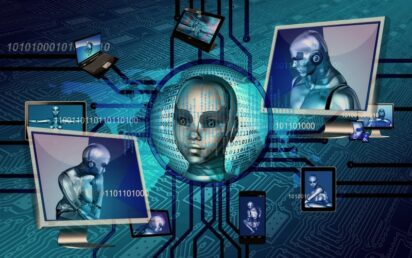AI has infiltrated different sectors and is poised to cause a massive job displacement in many industries, including medicine. AI is being increasingly implemented in the medical industry to assist with tasks such as diagnosing diseases, predicting patient outcomes, developing personalised treatment plans, and analysing large amounts of medical data.
However, the effectiveness of AI is limited by the quantity and quality of data it is trained on. It also lacks the empathy, intuition, and creativity that has been the hallmark of human intelligence. Since, the healthcare sector thrives with the ability to reason and make judgments beyond the limits of available data, providing a more nuanced and adaptable approach to healthcare, there are several jobs that AI cannot take over. This article covers some of those jobs.
Physician/Doctor
Despite the potential of AI, it cannot replace the unique qualities of doctors and physicians. They combine technical knowledge with human qualities, such as empathy, intuition, and creativity, which are essential in providing excellent healthcare.
AI lacks the ability to connect with patients emotionally, adapt to unexpected situations, and make complex decisions. This limitation has left the roles of doctors and physicians as open as ever for qualified workers to fill, including foreign workers. However, it is essential for foreign qualified workers to fulfil the necessary requirements to work abroad.
For example, foreign candidates who already work in the medical sector or have a degree in medicine are required to attain a skilled worker visa to provide an immigration route to the U.K. The skilled worker visa is also open to recent graduates of medicine looking to start a career as a doctor or physician. It comes with an added advantage that allows workers to renew before it expires. For employers in the U.K. who need to employ skilled international workers, it is important to know about sponsorship licenses to enable them to employ skilled workers.
While AI can aid in diagnosing and treating diseases, it cannot replace the human expertise of a doctor. Physicians will continue to be in high demand, especially those who specialise in complex and chronic diseases.
Dentist
Dentistry requires a high level of precision and manual dexterity, which AI is not yet able to replicate. For example, a dentist must be able to manipulate small instruments and perform delicate procedures inside the mouth, which requires a human touch.
In addition to performing procedures, dentists provide necessary counselling and education to patients about oral health. This involves building relationships with patients and understanding their individual needs and concerns. AI is not capable of building these types of relationships and providing personalised care.
As technology advances, it’s possible that AI could eventually play a more significant role in dentistry, such as in the development of custom-fitted dental prostheses or in the analysis of dental imaging data. However, it’s unlikely that AI will be able to fully replace the expertise and personalised care provided by a human dentist
Physical Therapist
Physical therapists help patients recover from injuries and improve their mobility. They provide the atmosphere for one-on-one interactive sessions with their patients. An integral part of a therapist’s process is developing rapport with patients, understanding their individual needs, and providing emotional support throughout the recovery process. In addition, a high degree of clinical judgement and critical thinking is needed for developing personalised treatment plans, which AI cannot provide.

This is not to say AI has no role to play in physical therapy; it helps in monitoring vital signs, tracking progress, and measuring the effectiveness of exercise. However, it is not designed to perform the functions of a physical therapist who can provide customised treatment plans and make adjustments based on a patient’s response.
The impact of AI in the healthcare section is massive, aiding medical data analysis, and image recognition, among others. However, it is unlikely to replace human health workers due to the need for human intelligence. Therefore, while AI is tipped to cause massive disruption, there are some jobs that are safe in the AI world.

